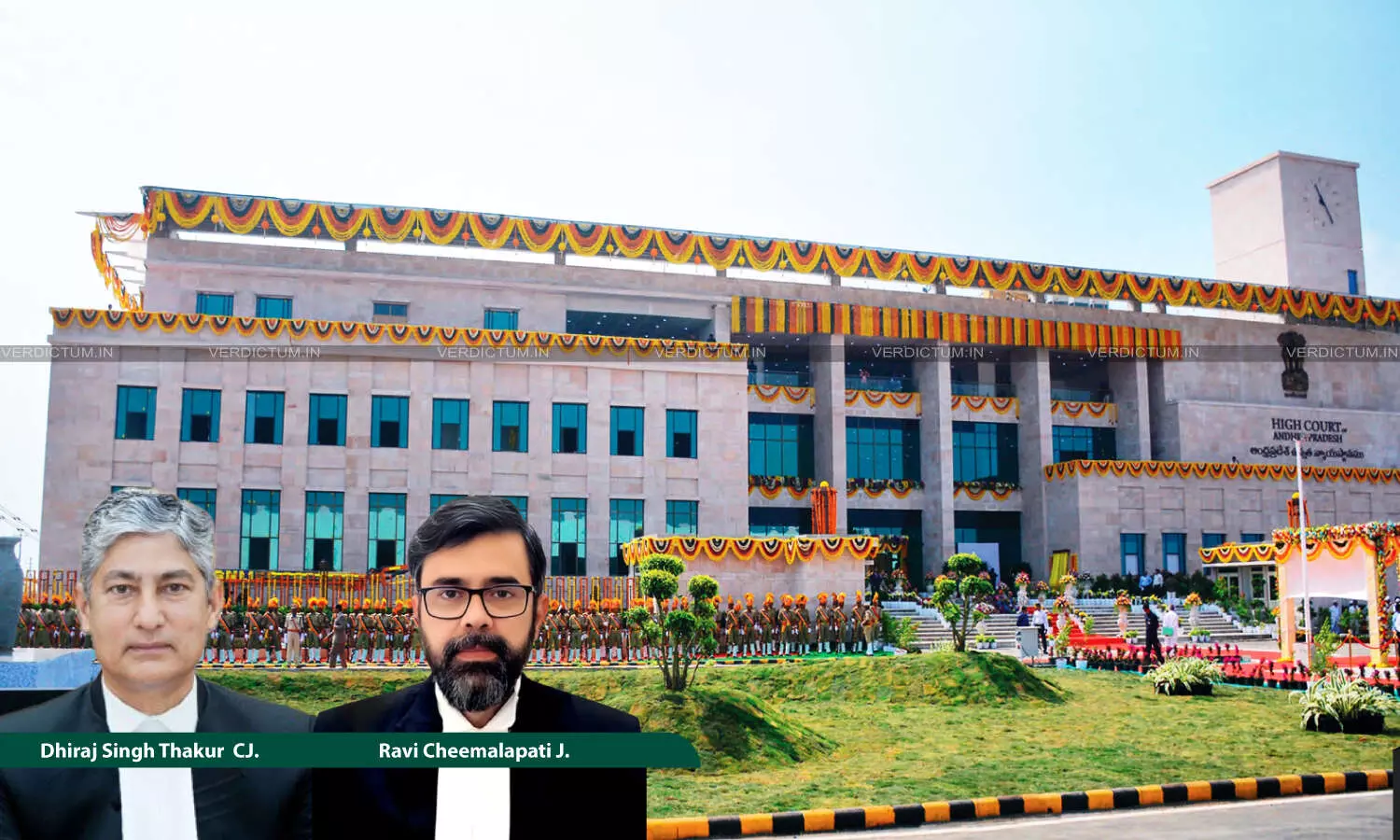
Chief Justice Dhiraj Singh Thakur, Justice Ravi Cheemalapati, Andhra Pradesh High Court
Andhra Pradesh High Court Takes Note Of Allegations Of Mismanagement; Upholds Waqf Board’s Action In Taking Over Mosque’s Administration
 |
|The Appeal before the Andhra Pradesh High Court challenged the order whereby the Single Judge had held that there was no illegality in passing the impugned orders for taking over the management of the mosque by the Board.
The Andhra Pradesh High Court has upheld the orders passed in favor of the Waqf Board for taking over the management of the Shahji Jamia Mosque. The High Court explained that the non-submission of accounts, coupled with registration of crimes for the allegations of mismanagement of property of the institution, must be a strong circumstance for the Board to exercise powers under Section 65(5) of the Waqf Act to protect the waqf properties.
The Appeal before the High Court challenged the order of the Single Judge whereby the Single Judge had held that there was no illegality in passing the impugned orders for taking over the management of the mosque by the Board.
The Division Bench of Chief Justice Dhiraj Singh Thakur and Justice Ravi Cheemalapati said, “Mere registration of crime does not per se amount to proof of the allegations regarding mismanagement of properties of the institution as rightly contended by the learned counsel for the petitioner. However, non-submissions of accounts coupled with registration of crimes for the allegations of mismanagement of property of the institution must be a strong circumstance for the Board to exercise powers under Section 65(5) of the Waqf Act to protect the waqf properties.”
Advocate Sita Ram Chaparla represented the Appellant while Advocate Shaik Khaja Basha represented the Respondent.
Factual Background
The petitioners are members as well as persons interested in the management and affairs of Shahji Jamia Mosque. The District Court, vide a judgment, had framed a scheme for the management of the said mosque, including elections to the Board of Trustees. Thereafter, in another suit filed for the removal of trustees and for appointment of new trustees, a compromise decree was passed with regard to the mode of elections to the Board and and accordingly elections were conducted. After the expiry of the term of the Board, as the respondents tried to take steps for conducting elections to the Board of Trustees of the said Mosque, a writ petition was filed.
It was the case of the petitioners that without conducting elections as per the scheme, the respondent-Chief Executive Officer Wakf issued the impugned proceedings exercising powers under Section 65(5) of the Waqf Act, 1995. Contending that respondents had no jurisdiction or authority to interfere with the affairs of the mosque in light of the earlier orders passed by the Court, the petitioners filed a writ petition. The Single Judge Bench dismissed the writ petitions, holding that there was no illegality in passing the impugned orders for taking over the management of the mosque by the Board. Feeling aggrieved, the petitioners preferred the Writ Appeal.
Reasoning
Referring to the Waqf Act, the Bench explained that Section 65(5) allows the waqf board to take over the administration of a waqf if the board has evidence that the waqf's management has violated the Act. This provision supersedes the general rules outlined in subsection (1). It provides a mechanism for the Board to step in and directly manage a waqf if its existing management is deemed to violate the law.
Reference was made to the impugned order issued by the respondent-Chief Executive Officer Wakf, which showed that there were allegations of mismanagement to the tune of Rs 150 crore worth of property and contravention of provisions of the Waqf Act,1995. The order also highlighted the non-submission of annual accounts of income and budget proposals and expenditure for every year for the assessment of the Waqf Fund.
The Bench also referred to the portions of the scheme framed by the District Court, which were only with regard to elections being conducted in the institution, and not with regard to the procedure to be adopted in case of mismanagement of the property of the institution. “It would be beyond anybody’s comprehension that any Court would frame or settle a scheme so as to make immune the members from malfeasance and misfeasance. Thus, the Waqf Board in order to protect the properties from being dissipated or misappropriated, might have exercised the powers conferred on it by the Act under Section 65(5) of the Act”, it said.
Thus, finding that the action of the Waqf Board in taking over the management of the institution by exercising powers under section 65(5) of the Waqf Act, 1995 needed no interference, the Bench dismissed the Appeal.
Cause Title: K.Md. Sadiq And 10 Others v. Chief Executive Officer Wakf And 3 Others and Others (Case No.- Writ Appeal No.: 845/2016)
Appearance:
Appellant: Advocate Sita Ram Chaparla
Respondent: Advocate Shaik Khaja Basha